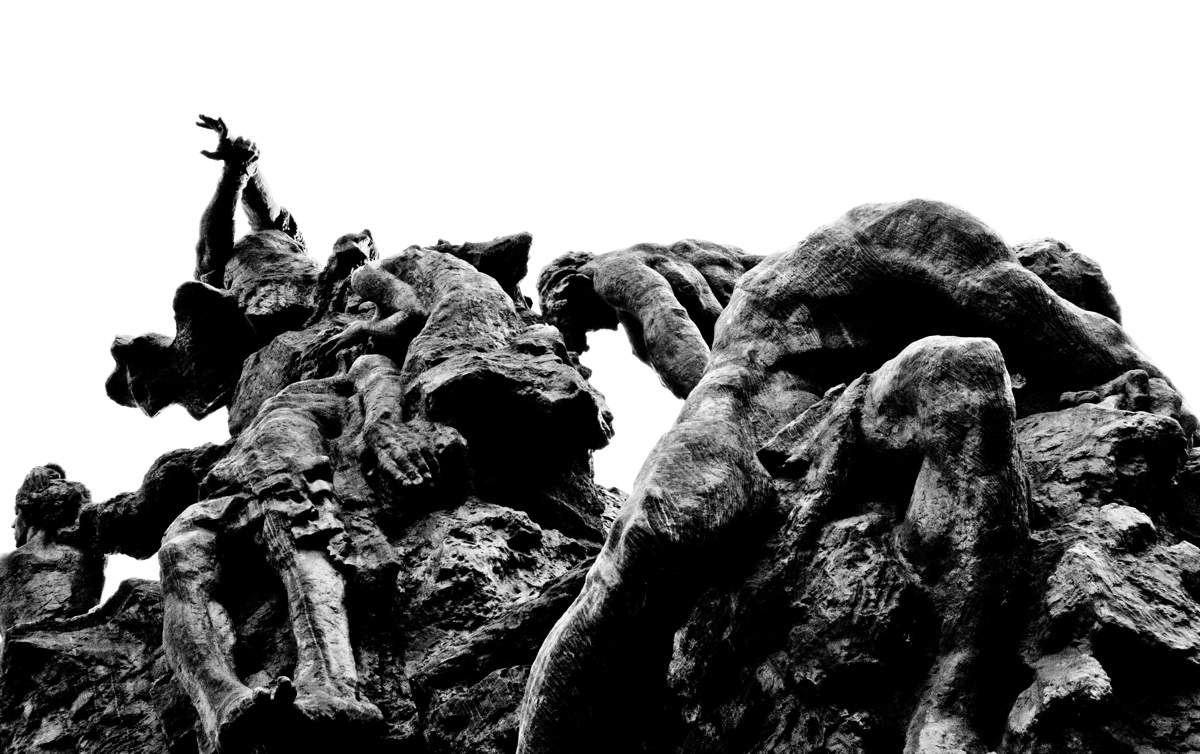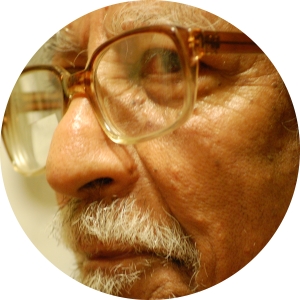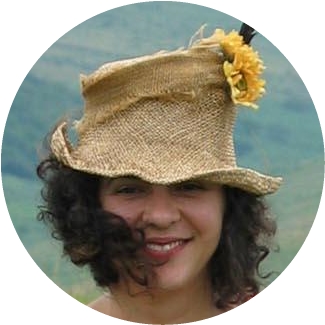Book 3 Chapter 9: Babi Yar
(Ukraine, 1941)
Everybody had been expecting it, the Ribbentrop-Molotov pact notwithstanding. His sister Olga had come for a visit from Odessa with her Captain and their three kids. Anton loved playing with them and Father had sternly warned him not to get them overexcited just before being put to bed. Suddenly the radio which was cracking away in the background started broadcasting martial music, and a solemn voice announced that the Nazi invaders had crossed the border and taken Lvov. There was little doubt that in a matter of days they would be in Kyiv.
Rudi was surprised that Father, who hated the Russians for what they had done to the Ukrainians, causing the holodomor, which cost three million lives, did not rejoice on hearing the news. He was very suspicious of the Germans and knew about their racial laws. Not only was his grandfather a Tatar, but Mama had a Jewish grandmother, and feared that past slights with neighbours and the need for ration coupons might bring these things out in the wash. Anton who ignored family history was over the moon. The Germans will help us liberate ourselves from the yoke of that murderer Stalin, he said. Anton was studying Law at Taras Shevchenko and his fellow students had convinced him that there was a big chance that this fellow Adolf Hitler, ridiculous though his moustache was, would help them get rid of the commies. Father had his doubts. Rudi who had never been interested in studies, but was a good enough car mechanic, tended to follow his big brother in everything. If Anton said Hitler was a good thing, then he went along with that. Mama said nothing — whatever Father said must be right. But then Anton, her favourite son said the opposite, so he must be right too. The Captain was obviously in a high state of bewilderment, and had been pacing up and down the floor for some time. He had decided that under the circumstances, he had no alternative but to rush back home to join his regiment.
‘Olga, take your brother with you when you go back to Odessa, it will be safer for him,’ mother had entreated. Rudi was not sure.
‘Whatever for? Why do you want me to go to Odessa?’
‘First, it will be safer for you, then you can more easily cross over into Turkey, and then go to America… this country is fucked up,’ said his father. He trusted neither side.
Rudi shook his head, he was going nowhere, he would stick with Anton and go wherever the latter decided. Finally the Captain, Olga and the kids left, and Father acted like a punch drunk boxer, staring in front of him, saying not a word, not even when spoken to. Then suddenly, for no reason that Rudi understood, Anton made a U-turn. His friends must have told him to be wary of the Nazis. They were patriots who hated the communists and the Nazis about equally. So he and Rudi put a few things in their bags, and left. We will link up with the Ukrains’ka Povtans’ka Armiya, he finally decided. That’s our best bet, he assured the younger brother. He had been told to go to Park Askoldova Mohyla where he would meet some like-minded young men who would then proceed together to an address where they would become members of the Armiya. But when they arrived in the park, they were met by some fierce-looking individuals, some of whom knew Anton, and it turned out that they were committed to the Nazi invaders. To Rudi’s surprise they talked Anton into changing his mind once again and the brothers ended up joining them. Rudi felt that he had no choice. They were taken to a secret camp where they met a huge army of volunteers, a sort of welcoming party for the Einsatzgruppen, little knowing what their real agenda was.
Anton was recognised as excellent material, and when the Germans arrived, he was recommended to them as officer class. He was subjected to the intense propaganda necessary to revive the dormant anti-semitism that Ukrainians had been disciplined into controlling by the Bolsheviks who even sent people to prison for saying the derogatory “Zhid” rather than “Evrei”. Anton conveniently wiped off any lingering memory of their Jewish ancestor. He was promptly made an officer of the Waffen SS of the Einsatzgruppen and in time, had 1000 men under his command. He relished his new uniform and Luger, and gloried in the company of his new friends, drinking vodka and schnapps every night with them. Rudi had to satisfy himself with being a foot soldier, but he was happy to bask in the glory of the illustrious brother.
The Germans were firmly ensconced in the city before the end of July, and as pockets of resistance began to mushroom up almost everywhere, especially among party members, harsh measures had to be resorted to. Thus hostages were taken and summarily shot pour l’exemple, which Rudi found difficult to accept. He was not entirely an enemy of the communists, and he began to wonder why the Germans who had supposedly come to liberate his nation were now shooting them dead for something done by someone else.
One day, when he was repainting the walls of the mansion on Naberezhne Shose which the Germans had taken over, he heard Anton laughing in the next room, and peeping inside, he saw him drinking with his crony Herr Major Werner Weisskopf; the latter caught sight of him, and called him in.
‘You are the brother of that famous man here, ja?’ he asked, pointing at Anton. Rudi did not know enough German to understand all that was said, but enough to nod assent to this.
‘I say, Anton, why don’t you ask your brother to go get us a couple of nice Ukrainian chicks with big tits for tonight?’ Rudi understood every single word this time, and that proved a turning point in his attitude to the invaders. Ukrainian women were not de facto whores! He was pleased that the German had so clearly overstepped the mark. He had expected that his fearless brother would tell the man in no uncertain terms where to get off, but Anton only burst out laughing and ordered his brother to get back to work. In German.
Anton’s success seemed to have gone to his head, and the younger brother could not understand his devotion to those arrogant foreigners. However, the fact that they were both in the Einsatzgruppen meant a few privileges for the family, extra coupons, protection from possible harassment, and in those increasingly difficult times, one wore a nose peg and learnt to smile mechanically.
Rudi did odd jobs for his new masters, fetching and carrying, a bit of car maintenance, and was glad that he was not officer material. If he had been asked to do anything overtly militaristic, he would have run away. He could not fail noticing that people who had more or less welcomed the invasion, had soon had a change of heart. Father who had kept quiet at first was now calling the Germans the enemy, and begging Anton to dissociate himself from his murderous friends. Rudi was shocked when he heard the brother talk about the necessity of breaking eggs if one wanted to eat an omelette. But the younger brother had little choice doing what he was doing, although running away to Odessa was something he often thought about. However, Odessa was faraway, and the only possibility of getting there would be across the dense forests, as the roads would be teeming with Anton’s friends. If only I could steal a boat and sail it down the Dniepr… he began dreaming. If only…
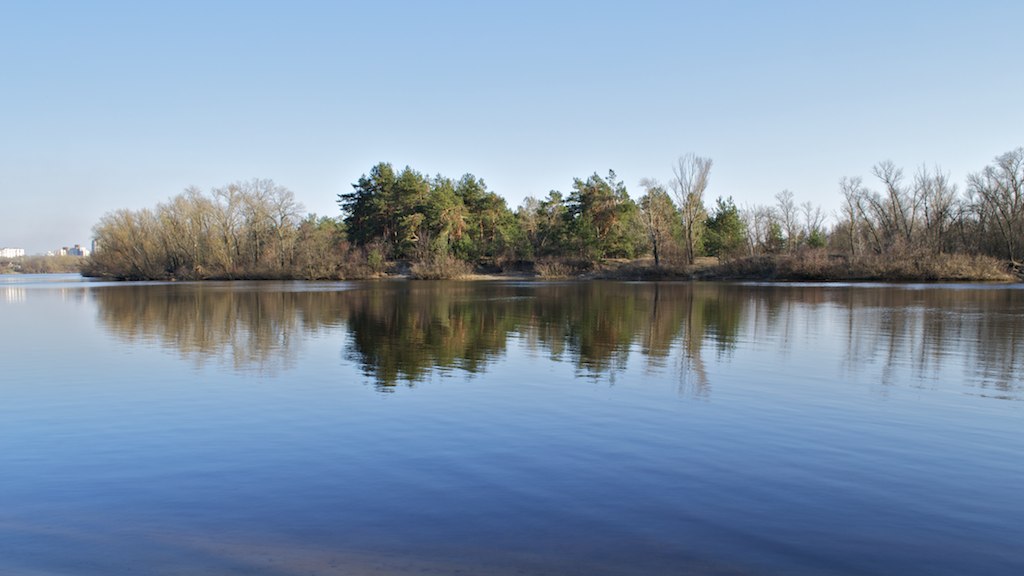 Photo Credit:
CC-BY-SA Nick Savchenko
Photo Credit:
CC-BY-SA Nick Savchenko
Then came the bombshell. The family with its Jewish skeleton in the cupboard had neither loved nor despised the Jews of the city. True Jews and gentiles did not really mix much socially, but he had had some good Jewish friends at school. There had been some acts of sabotage in the city, which everybody understood to be the work of the communist partisans, which must have included Jews. As far as he could see, they were like everybody, most were hard-working and honest and all loved telling funny stories. So, he was bemused, to say the least when one late autumn evening, he read one of the many posters the Germans put out in public places, to the effect that all Jews of the city of Kyiv and its environs had to come, on Monday the 29th of September 1941 by 8.00 a.m., to the corner of Melnykov and Dokterivsky streets near the Jewish cemetery, with documents, money, valuables, warm clothes, linen etc… for relocation. Whoever of the Jews, the notice went on, does not obey this order, and is found in another place, for whatever reason, shall be summarily shot. Any citizen who enters an apartment that has been vacated, and takes ownership of items will likewise be shot.
Suddenly he remembered that he had been asked by his team leader to be early for work on that Monday, and he wondered whether he would be working for the relocation movement mentioned on the poster. Once he was in the depot to which he had been assigned, some trucks came and they were ordered to climb aboard, and were taken to the corner of Melnykov and Dokterivsky streets, where already some apprehensive Jews were beginning to collect, loaded with suitcases, bags or bundles. They exchanged glances with each other but scarcely said a word. He had somehow gathered that something even more sinister than deportation was afoot.
There were enough people, men, women and children, to fill the Lobanovsky Dynamo Stadium twice over, gathered in the area, and they were ordered to line up and proceed along Melnykov Street in the direction of Kurenivka. They were accompanied by a large number of armed Einsatzkommando. Every now and then, a soldier shot someone for no apparent reason, and the sight of the corpses on the road must have struck terror in the breast of everybody — which was obviously the aim of the Nazis. They walked in silence, full of foreboding, and Rudi was ordered to follow in the truck. They overshot Kurenivka and in the distance ahead, they could catch a glimpse of the ravines of Babi Yar. Babi Yar! Where he and Anton and other friends used to play cowboys and Injuns. They had spent days there during the school holidays, he knew every ridge, every dip, every rock. It had been a place of fun. What were they going to turn it into?
By now everybody had realised that the invaders had a whole new meaning for the word relocation. Rudi realised that he was powerless to do anything. He was no hero. He suspected that he might even be a coward. He kept marching, hoping that it was not going to be as bad as he feared. First the Jews had to deposit their belongings in a large cordoned area, after which they had to take off their shoes and all their clothes including underwear, after which they were taken to the ledge. He saw someone he had seen at Naberezhne Shose and knew as Standardtenführer Paul Blobel who seemed to be in charge of the operations, give the nod to a team of subalterns, and they in turn gave the order to their team of trigger-happy shooters with machine guns to start the execution. As the victims fell on the ground lifeless or dying, other members of the Einsatzcommando pushed them down the ravine with their feet. They did this with an incomprehensible viciousness, as if it were the dead who were the guilty men. The sound of gunfire would not cease for a single second until it was dark on that dark day in September. Rudi would always be shocked when he remembered how, in view of its enormity, the massacre generated such little wailing and screaming. They were stunned into silence, he thought.
He watched this scene in a state of shock. Someone pushed a bottle of vodka towards his mouth and he took a swill. At first he thought he was going to be sick, but a second gulp put him right. Some people in his group seemed just as shocked as he was, but there were others who seemed to be enjoying the spectacle, like something they would like to tell their grandchildren some day. Yes kids, your granddad was there at Babi Yar, on that great day when we shot thirty thousand “Zhids” and kicked them into the ravine. The order came that Rudi and his team, provided with pistols, were to go down among the dead and dying and finish off those who had not yet died. In later years, every time Rudi remembered that day, the people he had finished off, although he knew that he was putting them out of their misery, he would feel sick in the stomach, and six decades later, he still had nightmares.
He had no choice. Had he refused to obey orders, he would have joined the thirty thousand. Maybe he would have been better off. As he descended down the ravine he was assailed by images of him scrambling down there in his carefree childhood days, and he felt guilty of committing a crime against childhood. With trembling footsteps he approached his first victim and shot him as he raised his head with a look of entreaty in his eyes. He convinced himself that the dying man was begging him to put him out of his misery. He shot about twenty more telling himself that he was carrying out an act of kindness, avoiding them a prolonged agony or stopping them being buried alive. He will swear to his dying days that he experienced no thrill of any sort. He had wished that a man had many lives, so he could have allowed one of his to be used in an act of defiance against those Nazi murderers, but you have only one life, and he did not have the wherewithals to be a hero of the Soviet Union.
At first Rudi had not been able to believe the evidence of his own eyes when he caught sight of Anton There he was, his big hero of a brother, laughing his head off, armed with a Luger, shooting Jews in the head and kicking them down the ravine with the same gusto as he used to kick a ball into the goalmouth of the opposing team. He was enjoying himself and relishing every moment.
That night, Rudi slept not a wink. He had a temperature of 41, and was delirious. He kept seeing the images of the day. His German officer had warned them against taking a day off on the next day. You haven’t seen nothing yet, he added with a laugh, there is more vermin to exterminate. Father was so worried that he sent for Anton, but the moment the older brother came into the room, Rudi became more disturbed, shouting, I don’t want to die, tell him not to shoot me, Father. Anton laughed, and said, silly boy, I ain’t shooting nobody, I am Anton, your loving brother. Rudi was sure he saw a gun in his hand and that he was going to put a bullet in his head. He was terrified, and buried his head in Mama’s breast. Mama, help me, tell this man to go away. Father explained that the boy had been worried about going to work. Tell him not to worry his silly little head, he told Father, what’s the point of having a powerful brother if he will let small things like that worry him? he asked. Later when Dima came to visit, he was almost lucid. When the two were left alone, Dima said that he had made plans for them.
‘We are going down the Dniepr to Odessa.’
‘There will be Germans all over the place,’ Rudi said, but hope was already penetrating his soul, like the morning sun forcing its way in across a chink in the curtain in the morning.
‘Fuck the Nazi pigs,’ said Dima, ‘if you don’t take risks…’ He left the sentence hanging in the air.
‘We can row at night,’ Rudi said suddenly, and Dima laughed.
‘Who’s talking about rowing? My boat has a motor, and we’ll have plenty of fuel as well.’ Rudi was now quite excited by the prospect.
‘Do you mean the boathouse at Naberezhne Shose?’
‘Where else?’
There would be a third man, Dima explained, Grigor, a communist with a price on his head.
Rudi said nothing to Father and Mama, and next morning, he met Dima and Grigor outside the burnt café in Dnieprovskaya just before sunrise. Together they walked to the Club and Grigor opened the boathouse with a skeleton key. There was nobody around, making it child’s play to drag a small boat out to the water. Then they went back and took some fuel cans and some tools, and in less than half an hour, just as the sun was beginning to rise, they started the motor and were on their way.
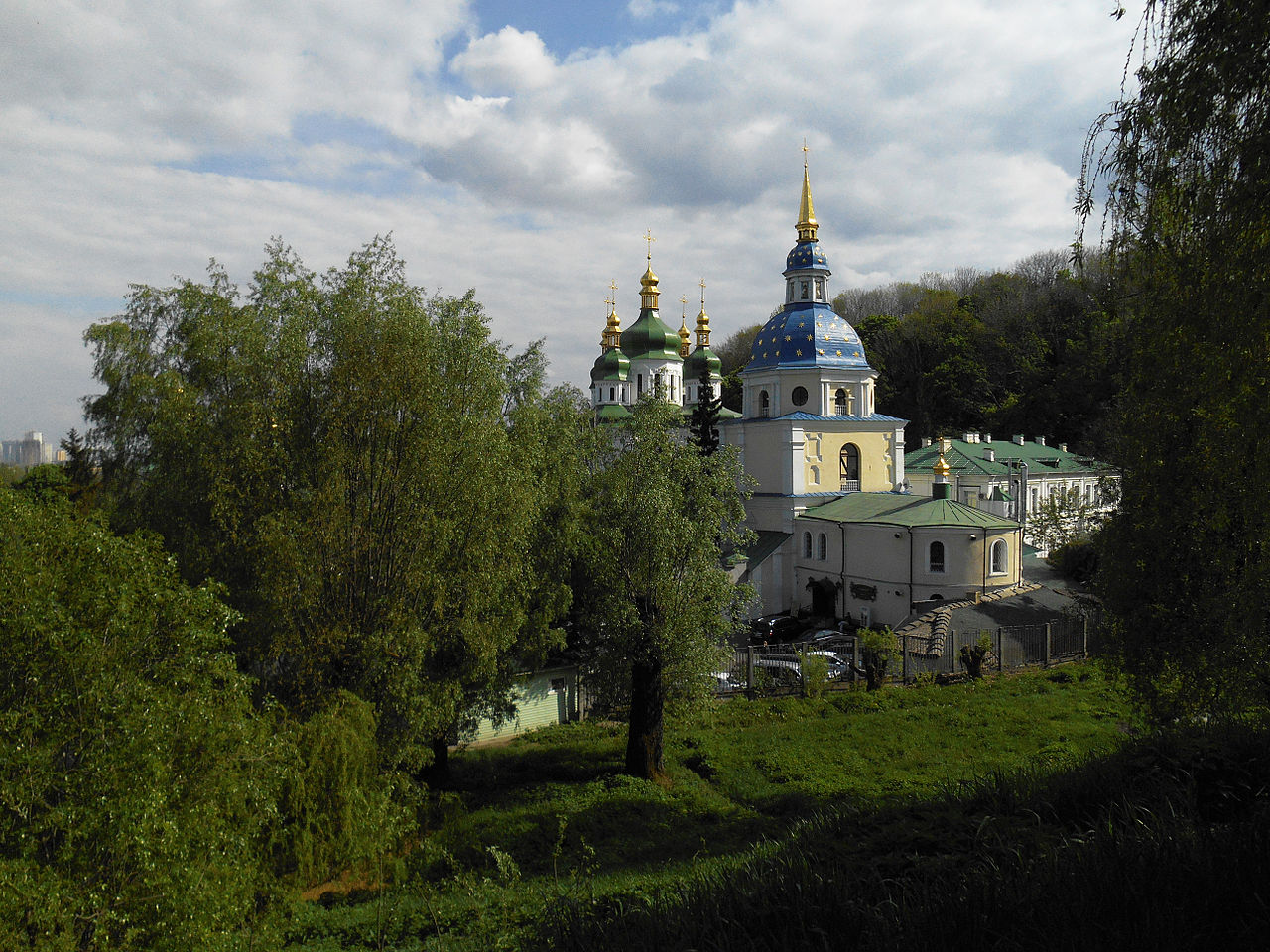 Photo Credit:
CC-BY-SA Wildcatjane
Photo Credit:
CC-BY-SA Wildcatjane
They were amazed at how simple it all seemed so far. In no time at all the green domes of the Vydubychi Monastery became visible on the left, and they forged ahead at full speed. They took evasive action, and avoided detection for a good hundred kilometres, not encountering a single German. The locals sometimes gaped at them in surprise, but that did not worry them. It was not until they were approaching Hrebeni that they saw what appeared to be a lone German soldier patrolling the river bank. Grigor said not to worry, and he directed the craft towards the shore where the man in uniform was. The soldier shouldered his gun and took aim, but did not pull the trigger. There was nobody else in sight.
‘Tovaritch, kamerad,’ Grigor shouted merrily, ‘wollen sie mit uns, ein vodka trinken? Is it too early for you? Or would you prefer schnapps?’
‘Juden raus!’ shouted Dima, and the German laughed.
‘Heil Hitler,’ said Rudi, feeling he had to join in.
The soldier moved his gun away to have a good look at the three men.
‘Heil Hitler,’ said the German happily.
‘Good perches, in the Dniepr, ha, ha, ha!’ Grigor said. The German nodded, and by now the boat was within metres away from the bank.
‘Come on board,’ Grigor said, ‘if you are not seasick.’ For the first time the German smiled, and he indicated his willingness to do that. Grigor signalled to Rudi to help the man on board, and he offered the man his hand, but he frowned and refused, he was quite able to do that without help, thank you. Grigor stood up and offered his hand to shake. The German extended his hand with a laugh, whereupon Grigor pulled him forward violently with one hand, and to Rudi’s amazement, he had plunged a long knife carefully hidden in the other into the man’s heart. The invader died silently and instantly. Dima and Rudi stared at the dead man in disbelief, and then laughed. Grigor was beaming with the satisfaction of a job well-done.
‘We’ll take him with us for a while yet, sixty kilometres or so, and then we’ll dump him into the river. There are some islands near Kaniv… the body won’t be found for months… we won’t get there until around sunset.’ They began by taking his Luger, his binoculars, his boots and Grigor signalled to take his clothes as well.
The mysterious Russian then explained about the partizans, the Catacombs in Odessa where they usually hid.
‘The fatherland is in danger,’ said Grigor, ‘and we are needed’. Rudi was impressed by these words, and felt that he had no choice but to go along with him.
Using the binoculars, they saw a small group of men in uniform. They were either Germans or Ukrainian volunteers. Traitors, spat Grigor. It can’t be too far from Rzysciv, he said, adding that he knew that they had a battalion there. Not for the first time, Rudi marvelled at the precision of Grigor’s intelligence. They decided to switch off the engine and take shelter in a small inlet. The dead German was now completely naked, and there was little they could do to explain his presence on the boat if the German patrol saw them. Rudi, who had the binoculars, was greatly alarmed when the men seemed to be looking in their direction. Suddenly someone pointed in their direction, and Rudi stammered out this information.
‘If we go down, we take a few of the bastards with us,’ said Grigor merrily. He struck Rudi as a man who not only was not afraid to die, but who would be disappointed if he survived the war. Even if by a stroke of luck they managed to kill them all, Rudi thought, the gunfire would surely alert other Germans likely to be in the area, and it would all be over in a matter of minutes.
The Germans then took a few steps in their direction, and Grigor’s face lit up. He fine-tuned the position of the gun, and gave Dima the Luger. Rudi now began to seriously feel fear. He did not want to die. Oh God, he said to himself, I have not even fucked a woman, surely my time can’t have not come yet. If he could swim, he might have thrown himself in the water to escape the inevitable fate of having a bullet in stomach. Then he too started laughing hysterically as he saw the Germans laughing. Their presence had not been detected, the soldiers must have been sharing funny stories. Grigor looked disappointed, and Dima exchanged a look with his friend suggesting that he shared his fears. Rudi was greatly comforted knowing that Dima was also afraid; lately he had been acting as if he was made of a different clay, pretending that he was more like Grigor. Perhaps he had just been putting it on to hide his fear; maybe he should try this as well. They sat in the gently swaying craft in silence, watching the soldiers through the binoculars in turn.
The men in the green uniforms seemed in high spirits, laughing aloud and singing, until finally they settled down drinking and eating. The three fugitives were hungry too, but had come prepared. They ate some black bread and cold meats and washed it all with some vodka. Rudi was much calmer now, although for a long time after the looming danger had passed, his heart was still beating furiously.
After a long while, the soldiers decided to move on and walked away, and they soon disappeared from view. Wordlessly the trio landed on terra firma and gathered some stones, and tied them to the dead man’s body and arms, and cautiously, they manoeuvred the craft forward gaining speed. The engine droned on monotonously, making them feel sleepy, but it did not take long before they were in Kaniv. As Grigor had said there were many uninhabited islands and he pointed to one, saying that it was one of the smallest and nobody lived there. The moment they felt the coast was clear, they dumped the body overboard, and Rudi could not help signing himself and making a silent prayer for his soul; even the hardened communist Grigor looked wistful. The body hit the water, making a gulping sound and at first seemed to hesitate between floating and sinking, but after a short while it got pulled down by the stones it started zigzagging its way downwards.
The way ahead now seemed pretty clear, and they filled the tank with more fuel and got the engine started and gained speed very quickly. The red sunset on the Dniepr was something Rudi and his fellow Kievlans had always cherished, but this particular sunset became burnt in his memory for ever. They ploughed on in the moonlight which spread broken bits of gold on the waters. It must have been in the early hours of the morning when they saw the lights of what they surmised was a major town. Cherkassy, Grigor muttered. He then said that a few kilometres down, they would stop for a two hour sleep as it would be madness to sail in the dark. They landed again and huddled closely to keep warm on this cool autumn morning and went to sleep. Grigor woke them up exactly two hours later, at first light. Having swallowed some cold coffee which Dima had brought in a bottle, they were once more on their way.
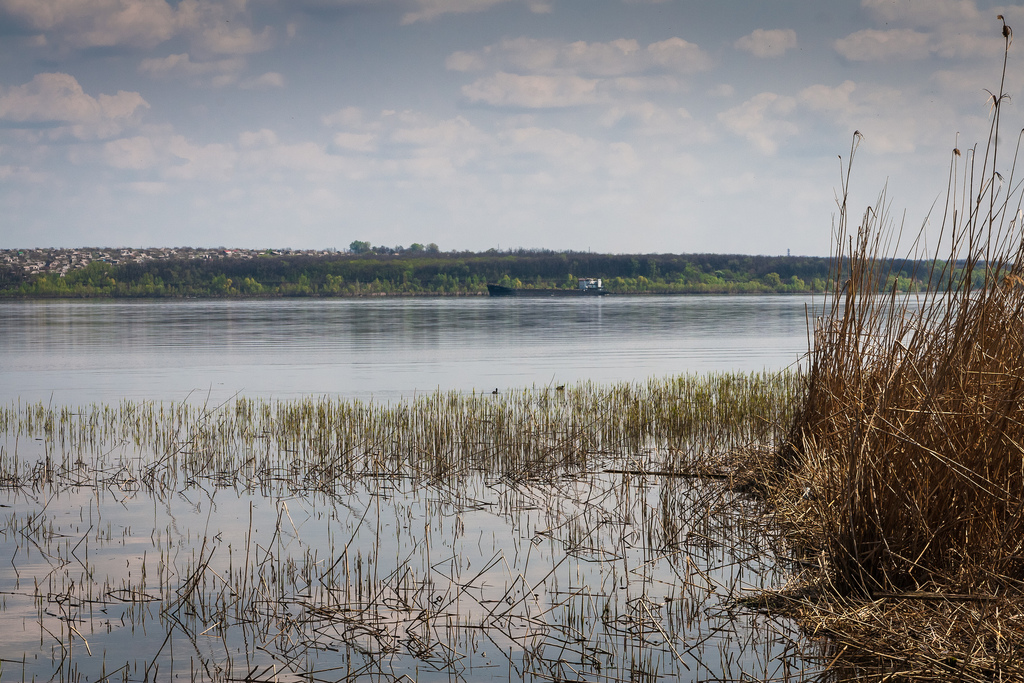 Photo Credit:
CC-BY-SA Max Bashyrov
Photo Credit:
CC-BY-SA Max Bashyrov
They were now in the waters between Kremenchuk and Komsomolskaya, when out of nowhere a German patrol boat appeared. There was no doubt that they had been spotted this time. The boat had a speed at least double theirs when on full throttle. There were four men on board, and through a loudspeaker, a clear message rang.
‘Achtung! Achtung! Stop immediately or we shoot.’ Dima and Rudi did not see Grigor take aim, but suddenly the patrol boat exploded. The speed with which the man had carried out his action was almost unearthly. Luck must have been on their side, for it took but one shot, and it must have hit the petrol tank of the enemy ship. Instantaneously bodies were seen shooting up as the flames rose and falling down again; it was obvious that the enemy were turning to ashes.
‘Now they are going to send the Luftwaffe after us,’ said Rudi, in the prey of both elation and fear.
‘No they won’t,’ said Grigor, ‘they prefer to use their planes to bomb cities and towns, it’s more cost effective.’
‘But they might send their patrol boats,’ ventured Dima.
‘That’s a certainty,’ said Grigor. Rudi began to become irritated by the communist who spoke like an oracle.
‘So what do we do?’
‘Nothing!’ said Grigor with a laugh. That was the first time that Rudi had seen him laugh. The younger men looked at him.
‘Well, not quite nothing,’ Grigor conceded. ‘Those idiots will send a patrol after us, but we will stay put right here, and they will be chasing a ghost boat.’ He explained that they would lie low between the islands at Cykalivka, where they would have a good vantage point. The patrol boat would leave from Kremenchuk, and they would be able to watch its movement as it went down river. After less than a day, they would come back empty-handed, tail between their legs, when the trio would be free to continue their odyssey.
They found a good hiding place between the islands as Grigor had said, and did not have to wait long before a heavily armed patrol boat raced down the river and disappeared from view.
‘They will be back in less than forty eight hours,’ said Grigor. Feeling safe the three men played cards, cooked and ate their meals, tried unsuccessfully to fish and waited. Thirty six hours later, they heard the sound of an outboard motor, and shortly after saw the boat heading back towards Kremenchuk. Dima and Rudi watched them in the binoculars, and Grigor shook his head when he was offered a peek.
The moment the German patrol boat had disappeared in its own wake, Grigor indicated that there was not a moment to lose, and they set off for what they hoped would be the last leg of their journey. They forged ahead all day and for part of the night, stopping for some rest on a river bank near Novomikailovka. In the morning, Grigor said that they should expect a significant German presence when they were near the big towns like Dniprodzerzhinsk and Zaporizzja, and Rudi feared the worst. So far they had been lucky, their good fortune was not going to hold. All afternoon he waited apprehensively for the sword to drop. They went past Dniprodzerzhinsk, and saw no Germans, and Grigor felt cheated. His discomfiture was more pronounced when after Dnipropetrovsk there was still no impediment to their progress. He shook his head; I was sure they would be everywhere, he said gloomily. Then suddenly his face lit up; there is Zaporizzja yet! I guarantee that they will be there, the Germans or their treacherous Romanian allies. When they reached Zaporizzja there was no sign of enemy presence either, and Grigor resigned himself and they forged ahead. I suppose it will be all clear now until we get near Odessa, he said, the picture of dejection.
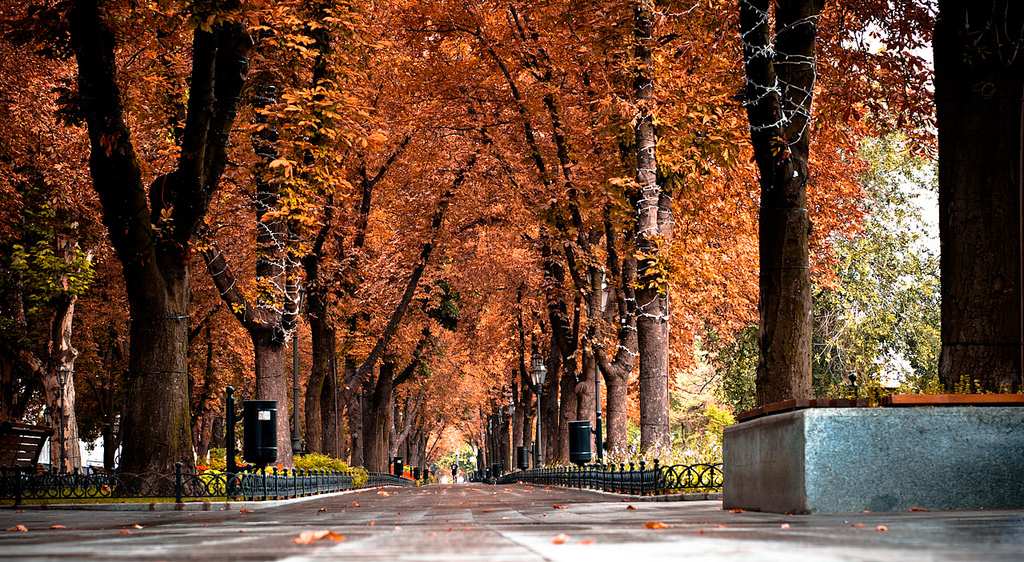
They had taken just five days to get to Odessa, and when they landed, Rudi declared his intention of visiting his sister Olga, and Grigor said he had three days. Our Soviet forces are going to evacuate the city to regroup, he explained; the Germans and the Romanians are about to occupy the city. Could Rudi and Dima meet him under the Richelieu statue on the Primorsky Stairs at sunset in three day’s time? Rudi had no intention of doing this. Unlike Grigor he had every intention of surviving the war. But he nodded. Dima tagged along.
When they got to Olga’s, she tearfully told them that Igor had been sent to Leningrad and that she had not heard from him. Go to Istanbul, she urged, or the Germans will draft you into their slave labour units. She had some money for him, for his boat fare.
‘I can’t afford to lose both brother and husband,’ his sister wailed.
Rudi was very tempted to take the money and escape, but could not arrive at an immediate decision, one moment putting personal safety first, then the next telling himself off. I am no hero, he conceded, but that does not mean I have to be a coward. Then he began telling himself that he had a duty to atone for what he had done in that accursed ravine, and finally that was what made up his mind to cast his lot with Grigor.
On the day he was due to meet Grigor, the Germans and Rumanians did indeed march and occupy the city. As the Soviet troops had retreated, there was nobody to resist them, and in the elation following their quick success, they let off their guard, making it easy for the two young men to keep their tryst with Grigor. When a country is invaded by a foreign enemy, one would expect the population to fall prey to gloom and despondency, but Rudi had not seen Grigor looking as healthy and optimistic since when he shot the German patrol boat’s tank and blew it to smithereens.
‘As I told you, those sons of bitches have invaded us,’ he said. Then he laughed a mirthless laugh adding, ‘Now our job is to make them regret the day they were born. Follow me.’
He signalled the young men with his chin and made for a side street,where a decrepit car was waiting. They clambered aboard, and Rudi recognised that they were going towards Nerubaiskoye. He had never been inside the catacombs, but Olga had told him about it. Odessa was built with sandstone which was in abundance underneath, and the builders had paid for it by leaving massive caves and a gigantic labyrinth.
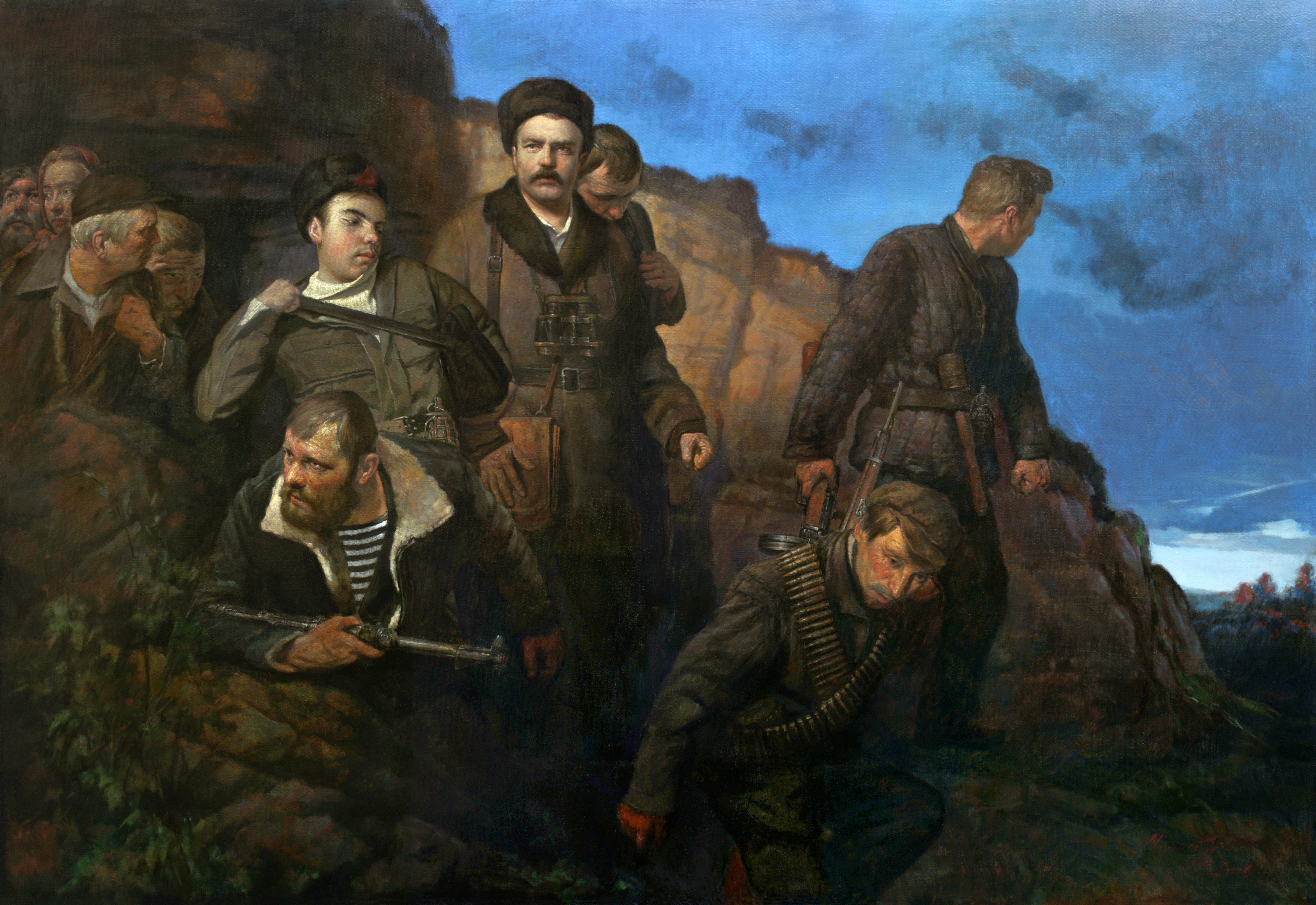 Photo Credit:
CC-BY-SA Andrey Mironov
Photo Credit:
CC-BY-SA Andrey Mironov
These catacombs, had been for centuries a haunt for vagabonds and smugglers, cutthroats and wayfarers. It was so tortuous and haphazard, that it was littered with the skeletons of dead people who had incautiously wandered inside and then could not find their way out.
Grigor put them in the picture in less than fifty words. We, the patriots of the Soviet Union, he said, use the catacombs to hide from the enemy and plan our action from here. We know our way inside out, but any German or Rumanian bastard venturing inside would be irrevocably lost. Welcome to your new abode! It made sense to Rudi, for Odessa and the regions were singularly free of forests and hills, and there was no other place to hide.
When they were inside, they were greeted by a number of partisans, all in high spirits and rearing for action. They greeted Grigor with veneration, ‘Welcome back Yakov,’ they kept saying. Rudi felt proud to be a companion of this much admired man. Then from a small recess an impressive man came out and wrapping Grigor/Yakov in his arms gave him a resounding kiss on both cheeks.
‘Yakov Gordienko, I knew you would do it. Welcome to the Unit.’
‘Thank you Comrade Moldotsov, thank you. May I congratulate our new Hero of The Soviet Union! No one deserves thisaccolade more. Can I introduce you to my young friends Rudi and Dima… two heroic young men with whom I travelled down the Dniepr from Kyiv.’
And the Comrade Hero of the Soviet Union grabbed Rudi rather forcefully, he thought, and planted two resounding kisses on his cheeks too. It was thus that Rudi became part of the Partisan movement fighting for the liberation of the fatherland. It was the first time that a Hero of the Soviet Union had kissed him, and in all probability the last time too.
He was much impressed by the eagerness of everybody to die for the fatherland, although he never craved for such an honour for himself. I will do whatever is necessary for me to do, he told himself, but once I die, I wont be in any position to serve the fatherland, so my first priority is to stay alive. I will live for the fatherland. For the duration of the war, he lived in fear of his life, and every night he prayed to the Archangel Michael to spare him when on the next day when he had a dangerous mission to carry out. And the first lesson he was to learn was that a mission which was other than dangerous was a contradiction in terms.
After the first day, he hardly ever saw Gordienko or Molodtsov again. His immediate commander was someone he was told to call Captain Marlov. He was a ragged rough-looking and speaking man, but like Gordienko, he was fearless. It occurred to Rudi that it was not that these men were not unafraid of death, they had an absolute belief in their invincibility.
Rudi’s first job seemed easy enough on the surface, but if caught it would have been torture and death: the resistance wanted to enlist the support of railwaymen and longshoremen in order to find out the times and destination of trains, the contents of cargo arriving in the Odessa ports, so commandos could go blow them up. It was anonymous young men like Rudi who were chosen to distribute leaflets. Not once did anybody betray him, and as a result of this sort of work, a number of trains were indeed blown up, a good few rowboats sunk, killing a large number of Rumanians and Germans and destroying ammunition and equipment. As a result the enemy found that their transportation and communication schedules were severely disrupted.
Yakov Gordienko had said that one important job of the resistance was to keep enemy troops pinned down in Odessa, so they could not serve elsewhere. To this effect, a number of actions which might be regarded as pranks were devised and Rudi and Dima were part of that too. They were given the task of getting volunteers to put sugar in the gasoline tanks of enemy officers, sticking wrong labels on goods due for transportation, putting a knife in enemy tyres, scratching their shiny limousines with a nail, and a host of similar pinpricks which demoralised them considerably, as they hated being ridiculed.
A short time after he had started his resistance work, Gordienko and Molodtsov were closeted in a cave and were obviously planning a big coup. A couple of hours later they asked Marlov and a few other officers to come in, and later, the officer briefed Rudi on a major operation that he was to be part of it. The Rumanian Kommandatura had taken over the old NKVD building in Engels street, and had demanded renovation works. Rudi’s mission was to infiltrate a group of workers that he had already established contact with through his leafletting work, and place toluene in places he was shown on a map. Other operators were likewise entrusted with similar missions. Rudi got in touch with his contact who agreed to let him join their team, and he easily found the places Marlov had indicated and was able to place the explosives in. Later that afternoon at half past five, someone using an electrical device set the bombs off, and the building blew up, killing fifty seven enemy soldiers, including the Rumanian general Glogogianu, sixteen officers and thirty five soldiers.
Rudi felt proud of his part in this action at first, but when later thousands of Odessans, mainly Jews were rounded up and killed in retaliation, he was not so sure. Once more he was riddled with guilt for causing innocent deaths. Telling himself that it was war and that he was doing his patriotic duty helped but little.
Finally he completely lost his nerve, deserted and ended in Istanbul, and there he sat out the war doing a variety of jobs.
After the war he went back home, and was surprised nobody came to arrest him. But Kyiv and the Ukraine had too many painful memories for him. Anton ended up by blowing his brains out with his prized Luger. When an opportunity arose he took it and found himself on a boat to Turkey once more. From there, he jumped on the Orient Express to Victoria Station.
On the night before Katrina was due to leave for Washington to take up her fellowship at the Smithsonian Centre, Grandma Angelina, who did not do solemn, called her and said that she had a family secret to tell her.
‘Swear you will never mention this to Giuseppe,’ she said in English, presumably because she thought that would baffle any potential eavesdropper.
That was her Papa, she was talking about.
‘You know, your Grandpa Giuseppe… he is not your grandpa.’
Katrina was too stunned to take it all in.
‘Granny Assunta told me before she died… Giuseppe, your dad… he is Rudi’s child… the two of them… she made me swear… she and Rudi, they had been humping each other like rabbits… crafty buggers they were… they did it for years… no one knew. I always knew he was a bastard… do that to his best friend, pteh!’
‘So Rudi is your grandpa after all,’ she spat on the floor, and added, ‘I am sorry.’
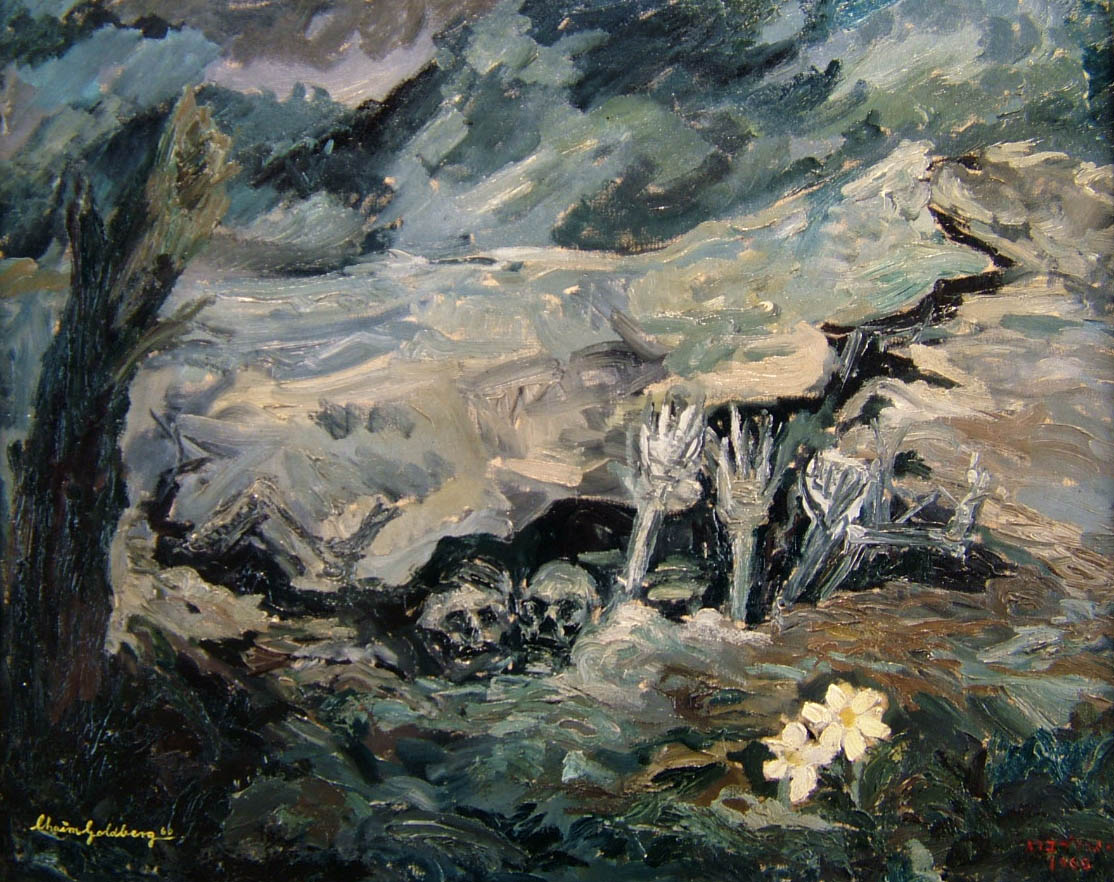 Photo Credit:
Shalom Goldberg (Public Domain)
Photo Credit:
Shalom Goldberg (Public Domain)
This is the end of Book 3.
